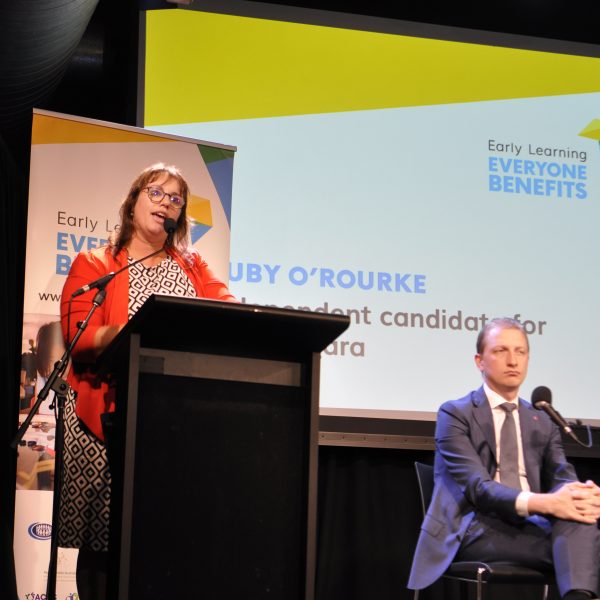ECEC services ponder how they promote breastfeeding with strategy launch

The launch of the Australian Breastfeeding Strategy : 2019 and Beyond earlier this month has prompted early childhood education and care (ECEC) services around the country to consider how they promote and support the continuation of breastfeeding when children are enrolled in care.
Backed by a $10 million investment by the Federal Government, the strategy seeks to support, encourage and promote breastfeeding. It has been endorsed by all States and Territories through the COAG Health Council, and provides an enduring policy framework for all Governments to provide a supportive and enabling environment for breastfeeding.
Around 25 per cent of Australian children are breastfed to six months of age. A core aim of the strategy is to double this by 2025, in line with the World Health Organisation’s target.
In launching the strategy, the Federal Government outlined their strong commitment to increasing breastfeeding rates around the country.
“We recognise breastfeeding is not possible for all women.The Government regulates infant formula so it provides a safe and nutritious alternative for babies who are not breastfed.
The breastfeeding strategy will improve the health and wellbeing of infants, young children, mothers and families,” a statement read.
The Strategy promotes breastfeeding as the normal biological way to feed an infant, including through community education and awareness campaigns. These campaigns will aim to ensure work and other places are breastfeeding-friendly.
The Australian National Health and Medical Research Council’s Infant Feeding Guidelines recommend if an infant is not breastfed or partially breastfed, commercial infant formula should be used as an alternative to breast milk until 12 months of age.
As part of the $10 million funding, the Australian Breastfeeding Association (ABA) is receiving $8.29 million to support their work in providing guidance and advice through their ABA Helpline and related work.
In addition, approximately $2 million is being provided to Australian Red Cross Blood Service, to increase access to donor human milk for premature babies through a centralised donor milk bank service.
Acknowledging the need to provide holistic support, and enhance infant health outcomes through working with mothers, fathers, partners, grandmothers and carers, the Federal Government have also committed $36 million to establish a new Maternity to Home and Wellbeing Program to ensure that every Australian mother, father and baby has access to perinatal support.
Further funding, in the amount of $43 million, has been provided for broader perinatal health. Organisations will be invited to apply for grants focusing on perinatal mental health support, and perinatal mental health promotion and awareness programs, the statement noted.
To learn more about the strategy, please see the COAG Health Council website, here.
Popular

Workforce
Quality
Practice
Provider
Research
How one teacher is using Little J & Big Cuz to build empathy, understanding and confidence in First Nations learning
2025-12-08 07:15:19
by Fiona Alston

Policy
Practice
Quality
Research
A new path forward: Australia’s First Nations Education Policy emerges to reshape learning for First Nations children
2025-12-08 08:00:28
by Fiona Alston

Workforce
Policy
Research
Practice
Provider
Quality
Child safeguarding failures in Queensland: Key findings and reform directions from the 2025 systemic review
2025-12-09 07:00:56
by Fiona Alston















